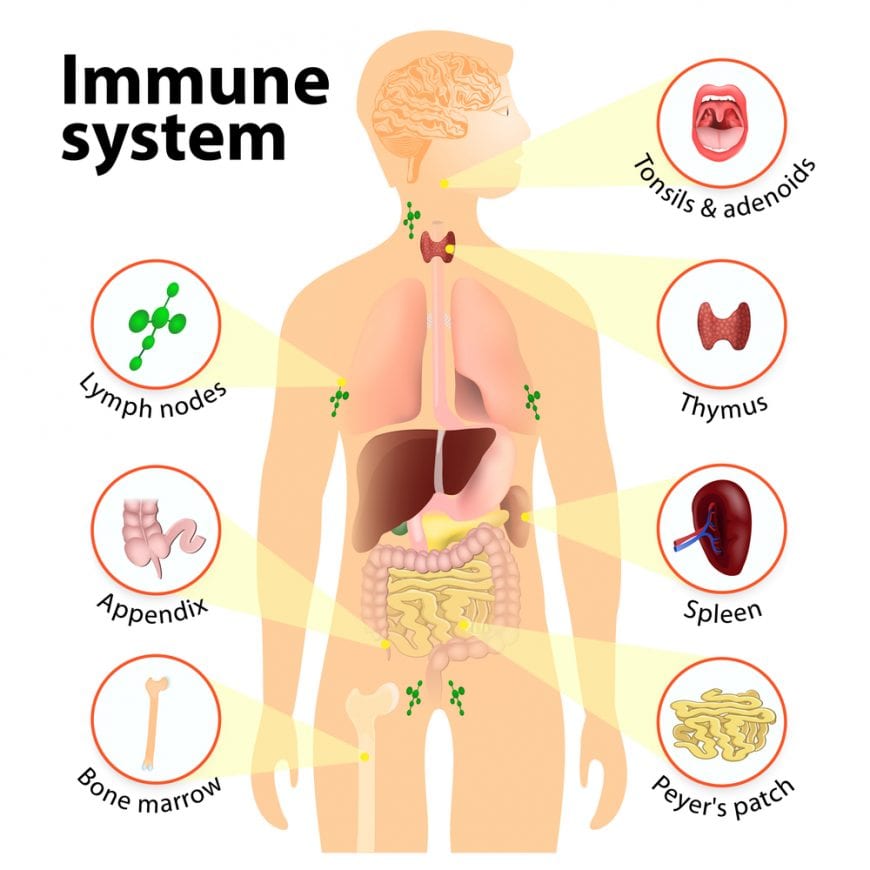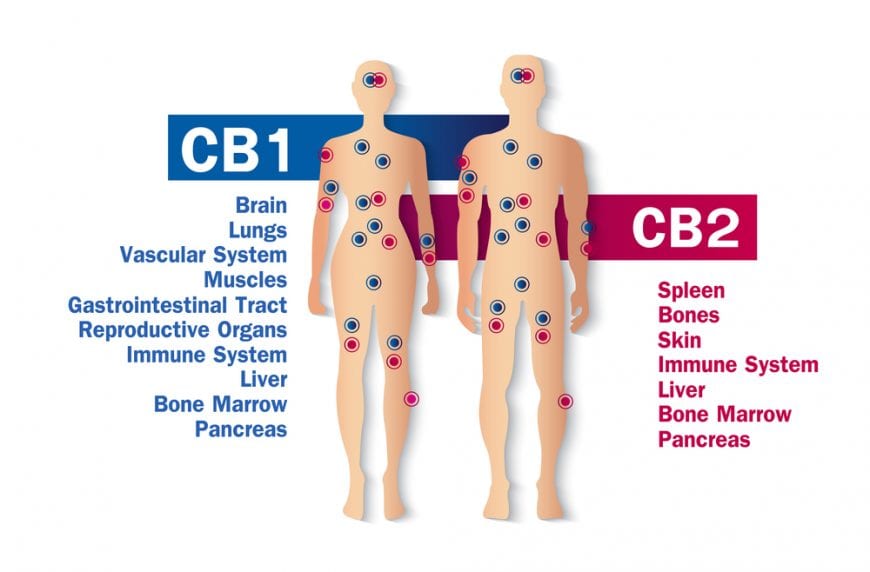Studies show cannabis could suppress or boost the immune system. How can it do both at the same time?
It is becoming increasingly clear that both endocannabinoids (in the body) and cannabinoids (in the plant) have the potential to interact with immune system functioning. The evolution of the immune system is arguably one of the cleverest aspects of human physiology, but it can bring our demise with autoimmune disease or catastrophic reactions, such as anaphylactic shock. Cannabis modulates the immune system, but is that in the right direction?

Rheumatoid arthritis, multiple sclerosis, Lupus, PANDAS, and Hashimoto’s thyroiditis are just a few examples of disease state resulting from an immune system gone awry. Cannabis successfully treats some of the symptoms of these conditions. This namely includes inflammation. Therefore, it becomes very important that the therapeutic use of cannabinoids modulate immune functioning in the right direction. You don’t want cannabis to suppress the immune system if you’re using immunotherapy to fight cancer, and you don’t want it to activate and make an autoimmune condition worse.
Cannabis and the Body’s Receptors
CB1 receptor is widely expressed in the nervous system, while CB2 is mainly expressed by the cells of the immune system. Therefore, any modulatory effects of cannabis will be mediated through the CB2 receptor.

This seems fairly straight forward until you find out that cannabinoids can also activate other receptors that are important to immune system functioning: TRPV1, PPARa and PPARg and GPR55. And that’s where things get weird for cannabis medicine.
Innate and Adaptive Immunity
Scientists divide the immune system into two parts: innate and adaptive.
Innate, or “nonspecific,” immunity is what your mama gave you; you were born with it. This includes monocytes and macrophages (that attack and absorb foreign bodies), as well as cytokines and chemokines (secreted by immune cells to neutralize agents of infection via multiple mechanisms, typically resulting in inflammation). We can appreciate that this branch of the immune system is crucial in maintaining homeostasis of the body, as well as bringing the body back to homeostasis after infection.
The role of cannabinoids in reducing inflammation has been described extensively. CBD has shown to reduce pro-inflammatory signals (i.e. cytokines) via CB2 receptor signaling mechanisms. Therefore, that cannabinoids boost immuno response is a valid argument. Essentially innate immunity function improves with cannabis-mediated signaling, thus cleaning up the inflammation in the local tissue sites harboring infection.
T-cells, B-cells, and antibodies of the immune system regulate the adaptive immunity of our immune system. Exposure to infection or vaccine build these antibodies. As such, this branch is extremely important in recognizing and attacking cells that are out of control (i.e. cancer cells), or in mounting an allergic response via recruitment of specific type of antibody called IgE.
Cannabinoids, The Immune System, and Cancer
As far as adaptive immune function is concerned, the role of cannabinoids in its modulation is less clear. Perhaps one of the most demonstrative pieces of evidence for this is in cancer. For example, one study reported differential effects on cancer progression depending on the dose of cannabinoids: low-dose were pro-proliferative in cancer cells, while higher doses were anti-proliferative and pro-apoptotic.
It is important to note that adaptive immunity regulates our body’s recognizing, attacking, and cleaning up, cancer cells. This study highlights a potential bimodal action of cannabinoids on cancer cell growth, where the effect is dose dependent. Therefore, we can speculate that cancer growth arrests, and adaptive immunity boosts, at higher doses of cannabinoids (micromolar range).
However, another concern about using cannabinoids in cancer treatment comes from their reported immunosuppressive actions via stimulating the CB2 receptor in immune cells. Scientists report that THC exerts immunosuppressive effects in vitro and in vivo on macrophages and T cells of this system system.
Changes in the cannabinoid receptor levels of cancer patients might explain this. CB1 receptors have been shown to be reduced in malignant cells. In liver cancer, higher abundance of CB1 and CB2 receptor correlated with improved prognosis.

Does cannabis boost immune system function?
Yes and no. The relevant factors involve dosage, the disease the user treats with cannabis, and the receptor numbers in the target tissue. Additionally, we don’t always want our immune system revved-up to full. A too-ready immune system can exacerbate autoimmune diseases.
Cannabinoid signaling keeps innate immunity in check. This is important knowledge, as it gives us the ability to boost this system’s function. After all, inflammatory environments associate with the development of a myriad of other diseases, including cancer. We just may have struck gold with the discoveries surrounding the anti-inflammatory properties of cannabinoids.






Anthony Godard
In 2017 I had stage four colon cancer and started the RSO Cancer Protocol. It took three lbs. of cannabis to cure it and am on a THC capsule everyday. I am in better health than I have been in 25yrs. or more.